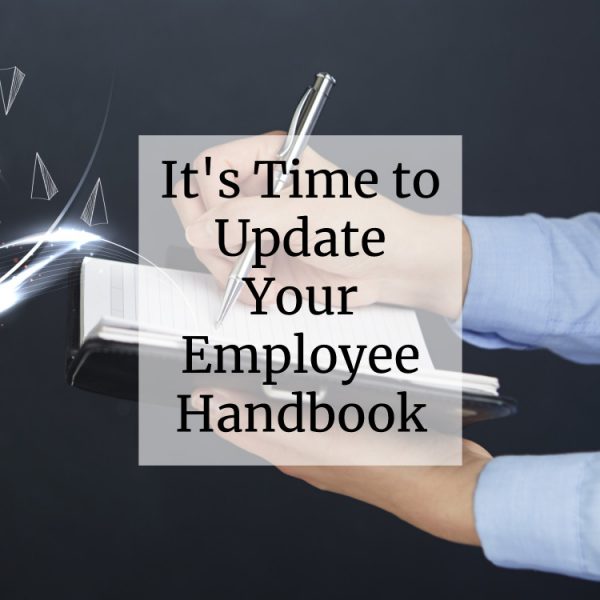Employees can be an incredible investment for your business. They can also become a risk. One of the most effective ways to manage potential problems, and protect your employees, is to have an up-to-date employee handbook. January is the perfect time to review your current handbook and revise it. Here are a few things to consider in your next update.
Undocumented Practices
Sometimes businesses have spoken rules and they aren’t documented. For example, you might tell employees that if they’re late to work three times, they’ll be fired. You tell them this during orientation and managers reiterate it when necessary, but you don’t have it documented in your handbook.
Undocumented rules may seem like common sense, but an outsider who’s making a determination on an unemployment claim will likely disagree. These policies must be documented and included in the employee handbook especially if you plan to take action when they aren’t followed.
Office Conduct and Culture
Respect is key at any workplace. When multiple working styles collide, it’s best to have workplace etiquette policies so that people know how to approach differences in opinion, workplace cleanliness, and clothing choices.
Some organizations allow certain individuals the opportunity to work from home. If your organization allows or limits the number of days an employee can work remotely during the week or month, or if specific permissions are called for before being permitted to work remotely, convey the information in your update.
One of the benefits of an employee handbook is that it mitigates the risk of employee misconduct and discontent. Setting rules of conduct in your employee handbook and reiterating boundaries when they’re crossed is important.
Social Media
Having documented social media policies are critical. Personal accounts can be visible to people employees don’t know. Once posts are public, they remain online for a long time. Like it or not, sharing of personal opinions, other’s opinions, news, articles, and thoughts contribute to an individual’s online persona as well as your organization’s if it’s mentioned in the pieces or is tied to the employee’s profile. Furthermore, your intellectual property, trade secrets, and customer information could be exposed.
Developing a social media policy limits your organization’s exposure to legal issues while helping employees use it responsibly. Documenting it makes it easy to determine if and when boundaries are broken.
Cell Phone Usage
Allowing the usage of a personal cell phone during work hours can present a distraction or hazard to both the user and fellow employees. It can also disrupt operations and put security at risk. Unless it is authorized, employees should only use their personal cell phones according to documented policy.
Organizations that require employees to drive as part of their job should also be aware of the growing number of laws that mention distracted driving, especially laws prohibiting or restricting cell phone usage and texting when driving. It’s also important to ensure that the cellphone usage including safe-driving policies in your employee handbook are current.
Changes to Employee Benefits
Any changes in employee benefits should definitely be in the updated employee handbook. In addition, it’s imperative to make sure this information is as detailed as possible and available in advance of open enrollment. This information needs to clearly state what benefits have been included, replaced, or when new policies or requirements have been put in place.
New Law and Policies
Laws change all the time. Any applicable new federal, state or tribal laws should be updated in the handbook. If your company has issued a change to policy or implemented a new one, be sure to take the time to update the handbook as well.
Make sure you’re not separating for any reason not in your handbook. It’s important to look at your separation reasons and make sure your policies are buttoned up. Use resources that S3 Management provides, and don’t forget to get those handbooks acknowledged.

